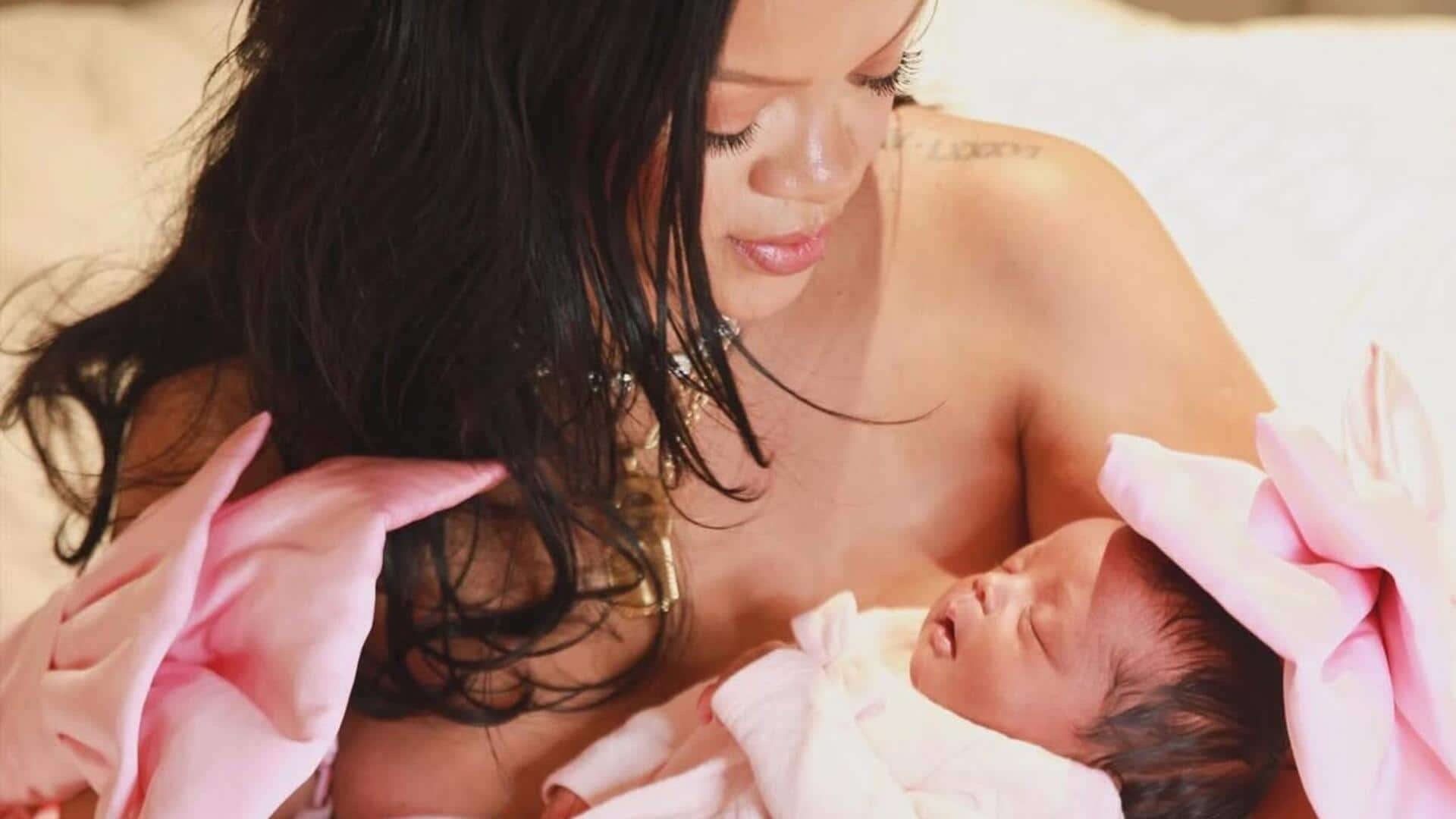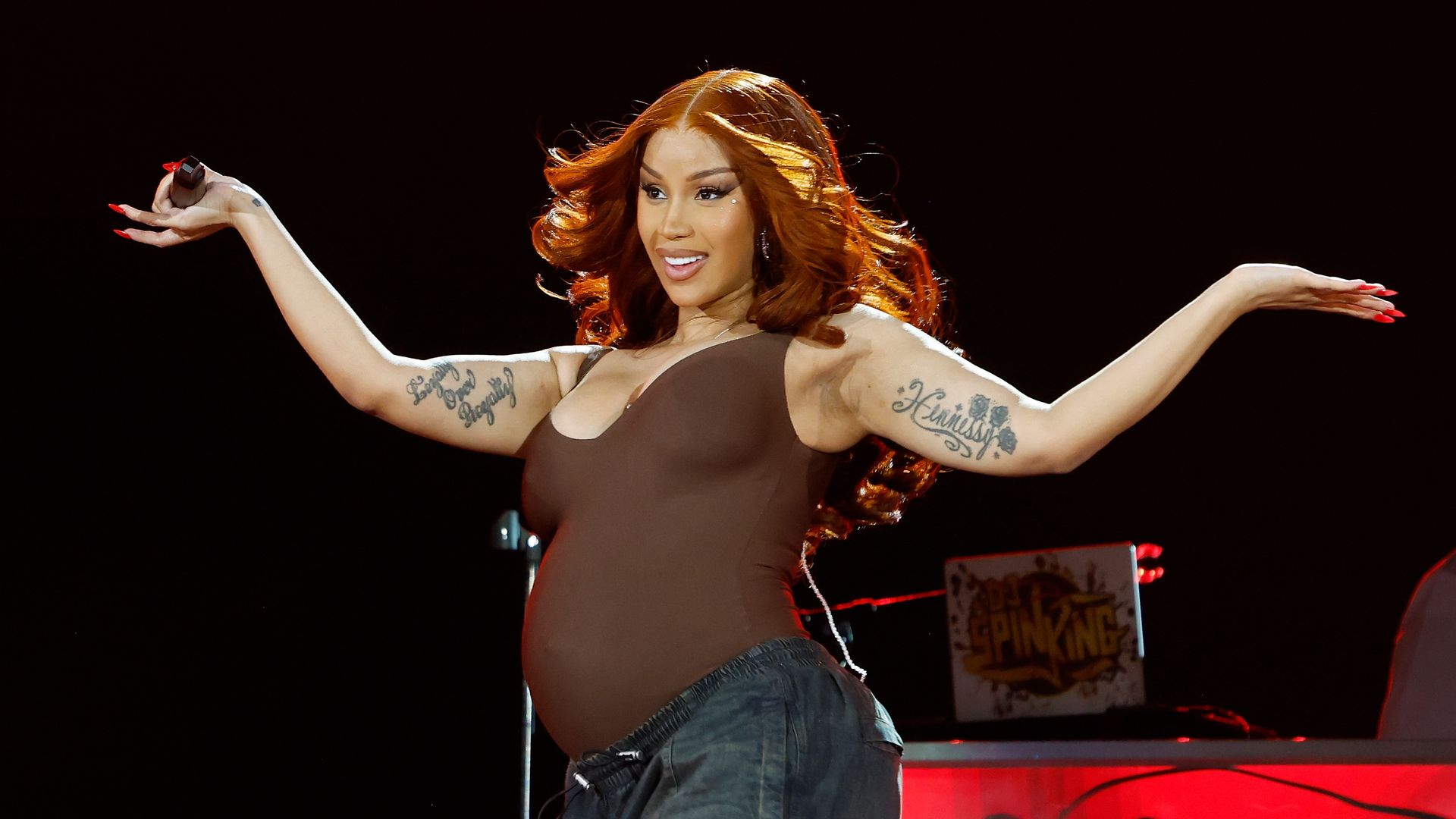Rihanna’s Fierce Defense of Cardi B: When Celebrity Sisterhood Silenced the Haters
The announcement should have been pure joy—a radiant pop icon cradling her growing belly, sharing a milestone that symbolized new beginnings amid the chaos of fame. But when Cardi B confirmed her pregnancy on Instagram in August 2024, the digital world didn’t erupt in confetti and well-wishes. Instead, it unleashed a torrent of vitriol, dragging the Bronx-born rapper through a gauntlet of body-shaming, slut-shaming, and armchair judgments that laid bare the ugliest undercurrents of online fame. “Another baby with that cheater? Girl, get your life together,” one viral tweet sneered, racking up thousands of likes. “She’s just chasing relevance—tour canceled again?” another quipped, referencing the scrapped 2018 Invasion of Privacy rollout. Amid the divorce papers she’d filed just weeks earlier against Offset, the father of her two existing children, the backlash painted Cardi not as a mother-to-be, but as a punchline for “broken homes” and “ghetto drama.” What began as a personal triumph twisted into a public spectacle, exposing the relentless scrutiny Black women in hip-hop endure, where vulnerability is weaponized and privacy is a privilege denied.
:max_bytes(150000):strip_icc():focal(749x0:751x2)/cardi-b-rihanna-514f712d1c9841ea87769e85877269f8.jpg)
Cardi, ever the unfiltered force, clapped back with her signature fire. In a tear-streaked Instagram Live that clocked 2.5 million views, she laid it all bare: the nausea, the secrecy, the sting of strangers dissecting her uterus like it was tabloid fodder. “Y’all act like having a baby is a crime when you’re me,” she vented, her voice cracking over the hum of notifications. “I got two beautiful kids already—Kulture and Wave—and this little one? They’re a blessing. But y’all wanna talk about Offset’s mess? Fine. Talk. But leave my womb out of it.” The floodgates opened: fans rallied with #ProtectCardi, flooding timelines with memes of her strutting bump-first through haters. Yet the noise drowned out the celebration. Comments sections brimmed with racist tropes—echoes of the “welfare queen” stereotype repackaged for the TikTok era—questioning her fitness as a mother, her career choices, even her right to joy. One particularly vile thread compared her to Nick Cannon’s sprawling brood, branding her “irresponsible” while ignoring the systemic barriers single moms face daily. It wasn’t just trolls; verified accounts piled on, turning a private revelation into a battlefield.

Enter Rihanna. The Barbados-born mogul, no stranger to the glare of pregnancy scrutiny herself—having navigated her own 2022 reveal with A$AP Rocky under a barrage of body commentary—didn’t hesitate. Just 48 hours after Cardi’s Live, RiRi dropped a statement on her Savage X Fenty Instagram that sliced through the melee like a diamond-edged blade. “To my sister Cardi B: You are a queen, a creator, a fighter—and now, a mama expanding your legacy with grace and grit,” she wrote, pairing the words with a throwback photo of the two at a 2018 Fashion Rocks event, arms linked in defiant solidarity. “The world loves to tear down Black women building empires, especially when we’re blooming with life. But your light? Unextinguishable. To the haters: Scroll on. This family’s joy ain’t your circus. Congrats, sis—may your bump be blessed, your heart full, and your clapbacks legendary.” No emojis diluted the message; no qualifiers softened the rebuke. It was raw, regal, and resolute—a public vow of protection that reframed the narrative from scandal to sisterhood.
The internet, for once, paused. Rihanna’s post amassed 15 million likes in 24 hours, spawning a wave of #RihannaStansForCardi that trended worldwide. Celebrities chimed in: Nicki Minaj, long Cardi’s rival, extended an olive branch with a subtle “Blessings, mama” repost; Lizzo amplified it with a video twerking to “WAP” captioned “Bump and grind, queens.” Even Offset, in a rare moment of accountability, tweeted a solo “Proud of you” without tagging drama. The backlash didn’t vanish overnight—stray jeers lingered like smoke—but Rihanna’s intervention shifted the tide. Forums that once buzzed with judgment pivoted to discourse: threads on Reddit’s r/popheads dissected the “mammy vs. maven” double standard, with users noting how white celebs like Kristen Dunst or Gigi Hadid get ethereal glow-ups while Cardi gets autopsy-level scrutiny. Mental health advocates seized the moment, launching campaigns like #PregnancyNotAPunishment, highlighting stats from the CDC: Black women face 3-4 times higher maternal mortality rates, exacerbated by stress from public shaming.

This wasn’t mere celebrity shade-throwing; it was a lifeline in the brutal arena of pop culture, where women of color are often pitted as gladiators rather than allies. Rihanna and Cardi, both immigrants’ daughters who’ve clawed from strip clubs to boardrooms, embody that shared scar tissue. RiRi’s Fenty empire—built on inclusivity—mirrors Cardi’s unapologetic authenticity, turning personal attacks into collective armor. In interviews post-announcement, Cardi reflected: “Ri seeing me? That healed something. Ain’t nobody got to co-sign my happiness, but damn, it feels good when they do.” For Rihanna, it’s a pattern: her 2018 shade at the Grammys snub of Cardi (“What happened to her?”) evolved into this fierce advocacy, proving growth over grudges.
As Cardi’s third trimester unfolds—tour dates rescheduled, album whispers heating up—the echo of that support lingers. The explosion of 2024’s announcement didn’t end in ashes; it forged a fiercer flame. In an industry that devours its stars, Rihanna’s stand reminded us: sisterhood isn’t a trend—it’s a revolution. And when queens link arms, the haters? They scatter.





